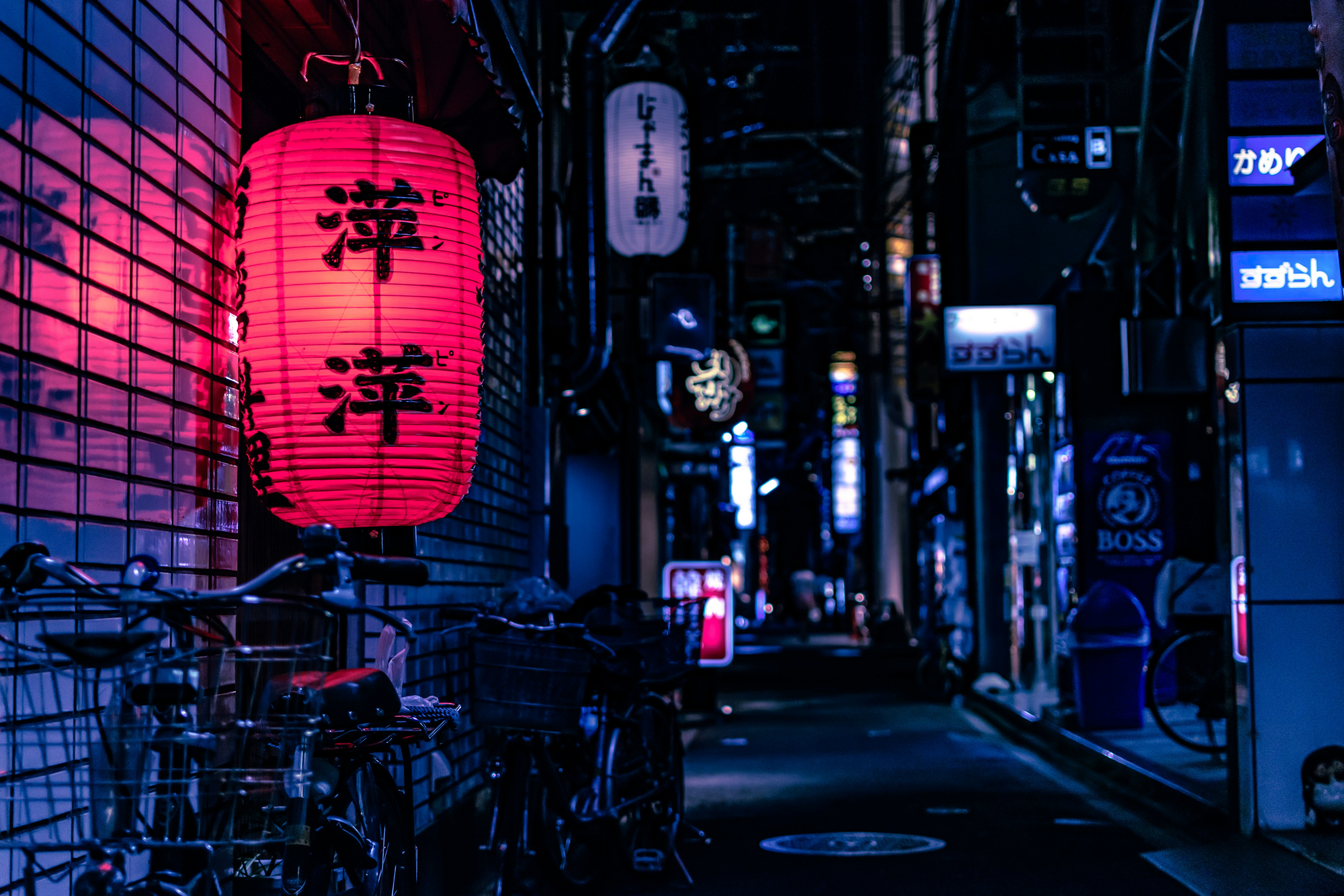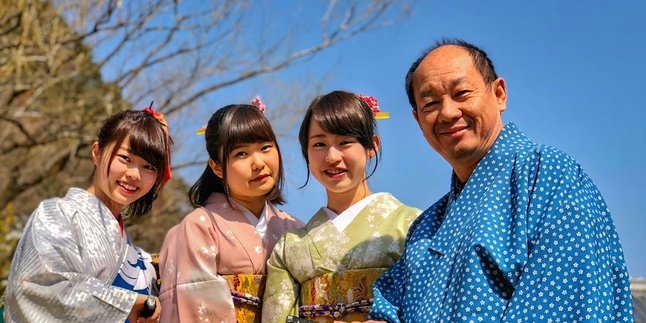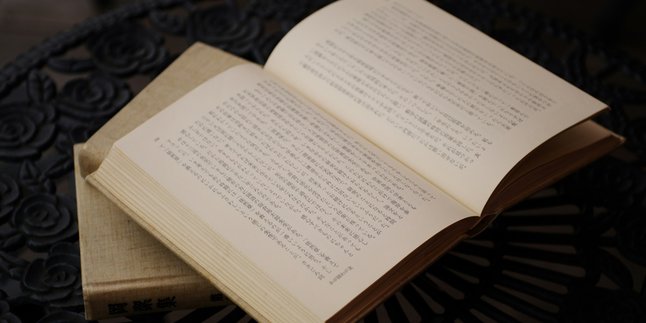Kapanlagi.com - Japanese has become one of the most popular foreign languages in Indonesia. It is evident that many Indonesians, especially young people, are interested in learning Japanese. When learning Japanese, understanding greeting phrases like "good evening" becomes important to know. Japanese good evening greetings are part of conversation practice.
In Japanese, good evening greetings not only reflect politeness, but also indicate the level of familiarity and appreciation for Japanese culture. Therefore, it is important for Japanese language learners to understand examples of using Japanese good evening greetings. Moreover, in the Japanese language, there are variations in expressing good evening that greatly depend on the context.
Curious about the variations of good evening greetings in Japanese? To find out, just read the following review:
1. Oyasuminasai

Japanese Oyasuminasai (credit: unsplash)
Oyasuminasai is a Japanese phrase that means "good night". The word "oyasumi" means sleep or rest, while "nasai" is a polite word used to express a request. So, literally, oyasuminasai means "sleep well" or "good night". However, in general, it is often used interchangeably with "good evening" or "konbanwa".
Depending on the context, the Japanese phrase "oyasuminasai" is usually used when wishing someone "good night" before parting ways at night. Therefore, besides being a greeting, this phrase also contains an expression of concern for others.
In terms of usage context, "oyasuminasai" can be spoken in a more formal setting, such as when speaking to someone who is older or has a higher social status.
Here are some examples of the Japanese phrase "oyasuminasai" used as a greeting for "good night" along with their meanings:
- Oyasuminasai. Ogenki de ite kudasai.
Meaning: Good night. Stay healthy.
- Oyasuminasai. Please have a good dream.
Meaning: Good evening. I hope you have a beautiful dream.
- Good night. You're tired, so please rest.
Meaning: Good night. Because you're tired, please rest.
- Good night. Have a pleasant morning.
Meaning: Good night. I hope you have a pleasant morning.
- Good night. See you tomorrow morning.
Meaning: Good night. See you again tomorrow morning.
2. Konbanwa

Japanese Konbanwa (credit: unsplash)
The word "Konban" in Japanese means night. The greeting "Konbanwa" is commonly used when meeting someone in the evening. Additionally, Konbanwa is often used when wishing someone goodnight. Furthermore, Konbanwa is an informal Japanese greeting. Therefore, the pronunciation of Konbanwa is often used in familiar and close environments. Here are some examples of sentences for the greeting "Konbanwa" in Japanese along with their meanings:
1. Konbanwa. O-genki desu ka?
Meaning: Good evening. How are you?
2. Konbanwa. Go-yasumi nasai.
Meaning: Good night. Good night.
3.Konbanwa. Do you have any delicious food?
Meaning: Good evening. Is there any delicious food?
4.Konbanwa. Please have a good dream.
Meaning: Good evening. I hope you have a beautiful dream.
5. Konbanwa. How have you been recently?
Meaning: Good evening. How have you been recently?
3. Oyasumi

Japanese Oyasumi (credit: unsplash)
"Oyasumi" in Japanese means "good night" in Indonesian. This word is often used when parting or saying good night in the evening. Usually, "oyasumi" is used between peers or people who are closer informally.
Oyasumi is a non-formal good night greeting in Japanese. This greeting is more suitable to be used among peers or people who are closer informally. When using oyasumi, there is usually a sense of familiarity and closeness between the speaker and the listener. For example, children can say "Oyasumi" to their parents or close friends.
Here are some examples of good night greetings in Japanese, "Oyasumi" along with its meaning in Indonesian:
1.Oyasumi nasai: Good night (formal)
Meaning: Good night or good night
2. Oyasuminasai: Good night (more formal)
Meaning: Good night or good sleep
3.Otsukaresama deshita: Thank you for your hard work (used when meeting or parting with colleagues)
Meaning: Thank you for your hard work.
4.Oyasumi: Good night (informal)
Meaning: Good night
5.Oyasumi, yasunde ne
Meaning: Good night, rest well. (used between close friends)
4. Yoi yoru o

Illustration of Night in Japan (credit: unsplash)
"Yoi yoru o" in Japanese also means "Good night" in Indonesian. Literally, "Yoi" means good or nice, while "yoru" means night, and "o" is a particle in Japanese that emphasizes the preceding word. So, overall, the phrase "Yoi yoru o" means "Good night".
Aside from meaning "Good night", "Yoi yoru o" also means "May your night be pleasant". This means that this expression can be used as a greeting in the evening when greeting or parting with someone..
"Yoi yoru o" is an informal and relaxed expression in Japanese, so it is more suitable for use in casual situations, especially when speaking with peers.
Here are some examples of sentences expressing good night in Japanese "Yoi yoru o" along with their meanings in Indonesian:
1.Yoi yoru o.Asu mo genki de ne.
Meaning: Good night. Have a good day tomorrow too.
2. Yoi yoru o.Oyasuminasai.
Artinya: Good evening. Good night.
3.Yoi yoru o.Yume o mitenasai.
Artinya: Good evening. May you have sweet dreams.
4.Yoi yoru o.Ashita mo ganbatte ne.
Artinya: Good evening.
Semoga besok juga semangat.
5.Yoi yoru o.Mata ashita omatase shimasu.
Artinya: Good evening. See you tomorrow.
Those are some variations of formal and informal Japanese good evening greetings. Hopefully, they are useful and can broaden your knowledge.
(kpl/psp)
Disclaimer: This translation from Bahasa Indonesia to English has been generated by Artificial Intelligence.
















